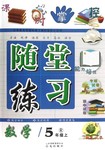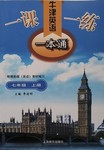题目内容
“BANG!” the door caused a reverberation (回声). It was just standing there, with father standing on one side, and I was on the other side. We were both in great anger. “Never set foot in this house again!” stormed father. I rushed out of the flat and ran along the street. The street lights were shining, causing rather a sad feeling.
A young father who held a child in his arms walked past me. I felt as if I saw my childhood from another space: happy and carefree. But now … I don’t know whether it is because I have grown up or because dad is getting old. We differ in our ways of thinking. He always put his opinions and codes of behavior on me. Whenever I do something wrong, he never admits it. We are just like two people coming from two different worlds. I wandered in the streets, until I had only the street lights to keep me company. When I finally reached the high-rise apartment block in which I lived ,I saw that the light was still on.
I thought to myself: “Is father waiting for me, or is he still angry with me?”
All the lights were off except father’s. Dad was always like this. Maybe he didn’t know how to express himself. After an argument he has the habit of creeping up(悄悄地来到) in my sleep. This was how he always was.He has been a leader for so long that telling everyone else what to do has become his second nature. With the key in hand, I was as nervous as I had ever been. At last, I decided to open the door. As soon as I opened the door tears ran down my cheeks. I suddenly realized that the iron(铁的) door that I had imagined between us did not exist at all. Love—it’s second to none.
1.Decide which is the best order of the following according to what happened in the passage.
a. I opened the door and entered the house.
b. Sadly I ran out into the street.
c. I reached the place where I lived and saw my house still brightly lit.
d. I thought of my father’s kindness towards me.
e. I walked about in the street without any aim.
A. b, e, d, c, a B. b, e, c, d, a C. b, e, a, c, d D. b, e, c, a, d
2.What made the writer think of his childhood ?
A. The sight of the street lights.???????????????
B. The sight of the empty street.
C. The sight of a father with a child in his arms.??
D. The sight of light in his own house.
3. Why do you think the father often shouts at his son?
A. perhaps the father is getting older and older.
B. perhaps the son has already grown up.
C. perhaps they never agree with each other.
D. perhaps the father has got used to doing that.
4. According to the passage what does “Love—it’s second to none” mean ?
A. 爱并没有什么??? B. 爱是第二位的???
C.? 爱是至高无上的??? D. 爱就是没什么
5.What conclusion can you come to after reading the passage?
A. The father treats his son in an unfair way.
B. The father is actually kind to his son.
C. The father is neither kind nor cruel to his son.
D. The father is always finding fault with his son.
1.B
2.C
3.D
4.C
5.B
【解析】
试题分析:这篇短文中作者主要介绍了父子吵完架后儿子跑出家门,在外面溜达一圈之后慢慢想起来了自己的童年,想到了每次吵架后爸爸的关切,回到家时看到爸爸还在等候自己,最终冰释前嫌,体会到了爸爸的对自己的挚爱。
1.句子排序题。根据短文第一段I rushed out of the flat and ran along the street可知,先是愤怒地跑到街上,第二段I wandered in the streets,我在大街上徘徊,When I finally reached the high-rise apartment block in which I lived ,I saw that the light was still on.接下来是我走到了自己的家门前,家里还亮着灯;第三、四段是作者回忆了爸爸对自己的爱;最后一段As soon as I opened the door tears ran down my cheeks.作者打开门回到了家中;故选B。
2.细节理解题。根据短文第二段的前两句A young father who held a child in his arms walked past me. I felt as if I saw my childhood from another space: happy and carefree.可知,是在路上看到一对父子散步的情形使自己想起了童年;故选C。
3.细节理解题。根据短文第四段Dad was always like this.和This was how he always was.等内容可知,爸爸出于对孩子的爱是一贯如此的;故选D。
4.句意猜测题。根据短文第四段I suddenly realized that the iron(铁的) door that I had imagined between us did not exist at all.可知作者心中原有的父子之间的那道铁门是不存在的,即爱是独一无二的,至高无上的;故选C。
5.细节理解题。根据短文第四段的内容描述可知,在爸爸和作者每次吵完架后都会一直亮着灯等着他并且默默地关心他等可推断出爸爸是非常爱他的儿子的;故选B。
考点:日常生活类短文阅读。

 开心蛙状元作业系列答案
开心蛙状元作业系列答案 课时掌控随堂练习系列答案
课时掌控随堂练习系列答案 一课一练一本通系列答案
一课一练一本通系列答案